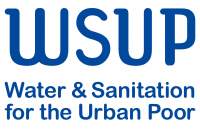- Announcements and miscellaneous
- Calls for proposals, tenders, applications, expressions of interest (projects and awards)
- Research Call - Identification of indicator criteria for definition of high-quality shared sanitation in urban contexts
Research Call - Identification of indicator criteria for definition of high-quality shared sanitation in urban contexts
4059 views
- Guy
-
 Topic Author
Topic Author- Director of Research & Evaluation, WSUP
Less- Posts: 30
- Karma: 8
- Likes received: 12
Research Call - Identification of indicator criteria for definition of high-quality shared sanitation in urban contexts
This work, commissioned under WSUP's
Urban Sanitation Research Initiative
, aims to identify key criteria determining whether a shared toilet in an urban context can be considered of high quality. This research will be centrally based on extensive survey of shared toilets and their users across cities in Bangladesh, Ghana and Kenya. This research has its roots in the current official judgement of the WHO/UNICEF Joint Monitoring Programme that shared toilets are to be considered at best a “limited” solution and cannot be included within the higher category “basic”. But as outlined in a 2017 editorial in the Journal of Water, Sanitation and Hygiene for Development (reference in main text of this Call), shared toilets are the only possible solution (short of rehousing) for the millions of slum-dwellers who live in dwellings which are too small for a private toilet; as a result, there is a risk that the JMP’s exclusion of shared toilets from the “basic” category may perversely incentivise donor agencies and governments not to allocate resource to slum sanitation.
However, many shared toilets are indeed of unacceptable quality, and at the same time there is uncertainty about criteria which can be used to distinguish between shared toilets of unacceptable quality and of acceptable/high quality: so even though it is widely accepted that high-quality shared toilets are an appropriate solution in some slum contexts, there is uncertainty about how “high-quality” should be defined. These issues are relevant internationally (to JMP judgements, to donor agency policies, etc), but also very relevant nationally within Bangladesh, Ghana and Kenya: in all three countries, shared sanitation is widespread, and there is strong national interest in better understanding when and how to promote and support shared sanitation solutions.
Against this backdrop, this research will aim to identify and explore key determinants of high-quality shared sanitation, on the basis of extensive survey of shared toilets and their users across cities in Bangladesh, Ghana and Kenya, alongside qualitative studies. We would expect this research to deliver both rich qualitative exploration and large-sample quantitative analysis. We would expect research that delivers both a) detailed empirical assessment of the drivers and determinants of user experience, and b) analysis to identify criteria that can provide the basis for implementing and policy setters to define minimum standards for high-quality sanitation, as a basis for high-level progress monitoring, for funding decisions, and for programme design/implementation.
Maximum budget under this Call: GBP 300,000
Bids due: Before UK 1700 hours on Monday 26th February 2018
Focus countries: Ghana, Kenya and Bangladesh
However, many shared toilets are indeed of unacceptable quality, and at the same time there is uncertainty about criteria which can be used to distinguish between shared toilets of unacceptable quality and of acceptable/high quality: so even though it is widely accepted that high-quality shared toilets are an appropriate solution in some slum contexts, there is uncertainty about how “high-quality” should be defined. These issues are relevant internationally (to JMP judgements, to donor agency policies, etc), but also very relevant nationally within Bangladesh, Ghana and Kenya: in all three countries, shared sanitation is widespread, and there is strong national interest in better understanding when and how to promote and support shared sanitation solutions.
Against this backdrop, this research will aim to identify and explore key determinants of high-quality shared sanitation, on the basis of extensive survey of shared toilets and their users across cities in Bangladesh, Ghana and Kenya, alongside qualitative studies. We would expect this research to deliver both rich qualitative exploration and large-sample quantitative analysis. We would expect research that delivers both a) detailed empirical assessment of the drivers and determinants of user experience, and b) analysis to identify criteria that can provide the basis for implementing and policy setters to define minimum standards for high-quality sanitation, as a basis for high-level progress monitoring, for funding decisions, and for programme design/implementation.
Maximum budget under this Call: GBP 300,000
Bids due: Before UK 1700 hours on Monday 26th February 2018
Focus countries: Ghana, Kenya and Bangladesh
This attachment is hidden for guests.
Please log in or register to see it.
Please log in or register to see it.
This message has an attachment file.
Please log in or register to see it.
Please Log in to join the conversation.
You need to login to reply
Share this thread:
- Announcements and miscellaneous
- Calls for proposals, tenders, applications, expressions of interest (projects and awards)
- Research Call - Identification of indicator criteria for definition of high-quality shared sanitation in urban contexts
Recently active users. Who else has been active?
Time to create page: 0.238 seconds







